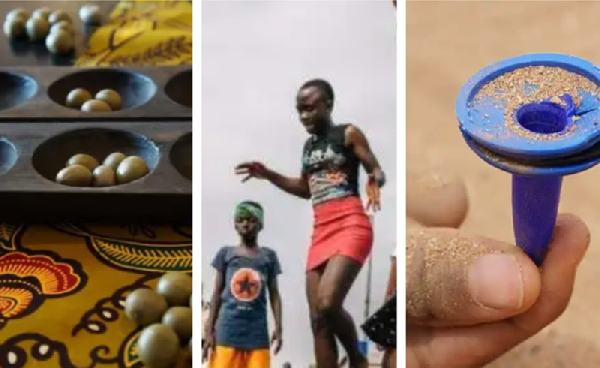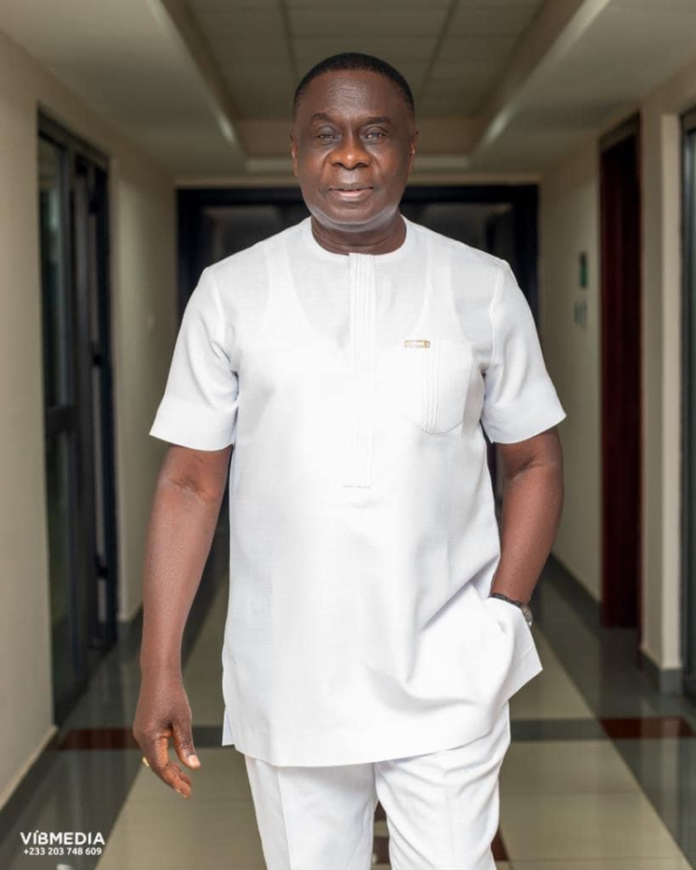In the era of smartphones, streaming platforms and video games, a treasured part of Ghanaian childhood is quietly slipping into obscurity. Traditional games that once echoed through neighbourhoods—bringing laughter, competition, and community—are now played less frequently, as children turn to digital alternatives for entertainment.
Games such as Pilolo, Chaskele, Ampe, Alikoto, Zanzama and Oware were once staples across the country, passed down through generations and played with remarkable creativity and improvisation. Today, many young Ghanaians are growing up unaware of their significance.
“Technology is the greatest thing to ever happen to our generation, but in some way, it has also ruined all the fun we used to have growing up,” one Ghanaian reminisced at a recent Games Night event celebrating local childhood traditions.
Pilolo – The Thrill of the Hunt
Often described as a fast-paced blend of hide-and-seek and a scavenger hunt, Pilolo requires players to search for hidden sticks while racing against their peers. The excitement lies not only in the chase but in the strategy of finding and claiming victory before others.
Chaskele – Ghana’s Take on Cricket
Chaskele is a beloved Ghanaian street version of cricket. Players use makeshift equipment: a flattened tin can as the ball, a stick as the bat, and often a car tyre to mark the goal. A designated defender attempts to keep the can from entering the tyre hole, adding a layer of challenge to the improvised game.
Ampe – Rhythm, Reflex, and Fun
One of the most widely recognised games, Ampe involves clapping, jumping, and matching foot movements with a leader. Mostly played by young girls, it combines physical activity with sharp coordination and rhythm.
Alikoto – A Game of Pain and Precision
Alikoto is played using a spinning top made from an old pen cap and the inner parts of a used battery. If the top fails to land flat, the player may receive a stinging slap to the back of the hand. The game’s high stakes and competitive nature made it a favourite, albeit a painful one.
Zanzama – The ‘Knocking’ Game
Not for the faint-hearted, Zanzama—or the “knocking game”—involves players striking each other’s heads if someone forgets to say the game’s name before sitting. Often resulting in headaches, the game was reserved for the bold and resilient.
Oware – Strategy and Skill
Unlike most physical games, Oware is a traditional board game with deep strategic value. Played with seeds and pits on a wooden board, it has been used for both entertainment and education, promoting mathematical thinking and planning.
Other Forgotten Treasures
Some games revolved around food, such as No Chem Pe, meaning “don’t like sharing” in Ga. If a player failed to say this before eating in the presence of others, they were obliged to divide their meal equally—no matter how many people were around.
Another game, often played with the seed of the Alasa fruit, involved flicking the seeds into a hole dug in the ground. It combined accuracy with patience and often ended with children chewing the fibrous seed like gum.
A Cultural Wake-Up Call
These games were more than just leisure. They built communities, encouraged teamwork, and developed physical and cognitive skills. As modern technology continues to dominate childhoods, there is growing concern that this rich cultural heritage may be lost entirely.
Efforts are underway by educators and community leaders to reintroduce these traditional games into schools and recreational spaces. But whether they can truly return to their former glory remains to be seen.
For now, the stories and memories of Pilolo, Ampe, and Chaskele live on—waiting to be rediscovered by a new generation.














